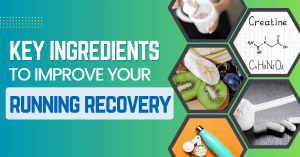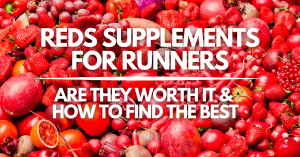When I was in college, my friends and I used to run an 80-mile relay race through the woods of rural Wisconsin.
Each runner in a team of five was assigned three segments of the relay, ranging from two to five miles in length.
A support van with the four other team members would leapfrog ahead for each segment so the next runner could receive the baton at the end.
This relay race was a lot of fun and, since then, relay races surged in popularity. Now, races like Hood to Coast, Reach the Beach, and the Ragnar Relay series are hugely popular and fill up quickly.
Luckily, training is fairly straightforward; only minor modifications like adding in a few two-a-day workouts are necessary (here’s a guide if you need).
But, what else can you do to ensure you have a great performance for your teammates and ensure you recover properly?
The secret may lie in how you refuel during the race. Specifically, using a carbohydrate and protein beverage.
Research on refueling during relay races
Since relay legs are split up into short segments, you can run a much faster pace for three five-mile relay sections than a single 15-mile run.
Because of this, you’ll be burning a much higher proportion of carbohydrates when you run.
During an easy 15-mile run, maybe half of your energy comes from carbs—the rest is from fat.
But in a hard three or four-mile run, over 90% of your energy could come from carbs! If your relay leg total is 15 miles, that could call for over 1,500 calories from carbs for most runners.
Clearly, fueling your body for a 15 or 20-mile relay leg is a difficult proposition, especially when you’ve only got a few hours between segments and you don’t want to run on a full stomach.
The solution: Carbohydrate + protein
There is a raft of research that indicates the solution to this problem is refueling with a combination of carbohydrates and protein.
When consumed alongside carbohydrates, protein has been shown to increase your rate of carbohydrate replenishment after exercise and improve performance in repeated bouts of exercise.
One study demonstrating this effect was published in 2002 by John Ivy and other researchers.
Seven cyclists undertook a two and a half hour cycling ride, followed by four hours of recovery. This protocol was repeated on three separate occasions, so the researchers could test each subject’s response to a protein + carbohydrate recovery drink compared with a carbohydrate-only drink with an equal amount of calories, and a carbohydrate-only drink with an equal amount of carbohydrates.
The results were clear: when consuming carbs only, the cyclists restored only 30% of the carbs lost during the four-hour recovery period after their 2.5-hour ride. But when consuming carbs and protein, they restored 47% of the carbs lost. Combining carbs and protein appears to boost performance in relay-like conditions, too.
A 2001 study by Eric Niles and other researchers at Springfield College had ten men complete a 90-minute treadmill run at a moderate pace, followed by two hours of recovery.
During this recovery period, the subjects were fed a carbohydrate-only recovery drink or a carbohydrate + protein drink with an equal caloric content. After the recovery period, the subjects completed a run to exhaustion at about 5k race pace.
This test was repeated on another occasion so all of the subjects completed the test with the carb-only drink on one occasion and the carb + protein drink on the other.
Again, the results speak for themselves: after drinking the carbohydrate-only beverage, the subjects managed to last seven and a half minutes during the run to exhaustion, but the carbohydrate and protein drink enabled them to last nine minutes—an increase of 21%!
These results have been confirmed by a number of additional studies, as described in review articles by Michael Saunders and Louise Burke & coworkers. When carbohydrate intake is constrained by time and by appetite, adding protein is a highly successful strategy.
Carb/protein refueling in the field
So, how do you adopt carbohydrate-plus-protein refueling in the field?
Studies to date have used protein to carbohydrate ratios in the range of 1:3 to 1:5, which would mean consuming 3 to 5 grams (or calories) of carbs per gram of protein.
Most studies use liquid recovery drinks, but a few have used gels or solid food. You’ll have to experiment with what works best for you.
Liquids tend to be easier to digest, but solid food tastes better and makes it easier to consume more calories.
The maximum amount of carbohydrate intake most people can tolerate during or immediately before exercise is around 60 grams of carbs per hour.
Most studies on carbohydrate and protein refueling prescribe 60-90 grams of carbohydrate-protein mixture per hour during recovery. In the real world, your intake is going to be dictated largely by what you can stomach before and after a hard run over several miles.
As with many things in running, you’ll have to try out a few different drinks, foods, or mixtures to find out what works for you.
My personal favorite is either Endurox R4 or Accelerade, both from Pacific Health labs. Both drinks include protein and carbohydrate at a 4:1 ratio of carbohydrates to protein. The makers of Endurox were the pioneers on the research behind the carbohydrate and protein combination.
Regardless of what you choose, when getting ready for your next relay race, be sure to bring protein in addition to carbs. It will help you replenish your carbohydrate stores faster and help you power through the final miles of a tough relay leg.









2 Responses
It’s so easy to overlook the fueling / hydration aspect of training and racing. One of those things we think are good to work on and plan but often rarely do. Then last minute we come up with something for race day and hope it works. I’ve been one of those who failed to properly plan on some races and paid dearly. One of my best endurance races was one where I fueled (food and hydration) well. But unfortunately that was the exception.
I have been a member of a Reach The Beach team a few times. Super fun race! Unfortunately, we would stop at a restaurant along the course and dine on burgers and beer. No wonder we suffered so much on that final leg!